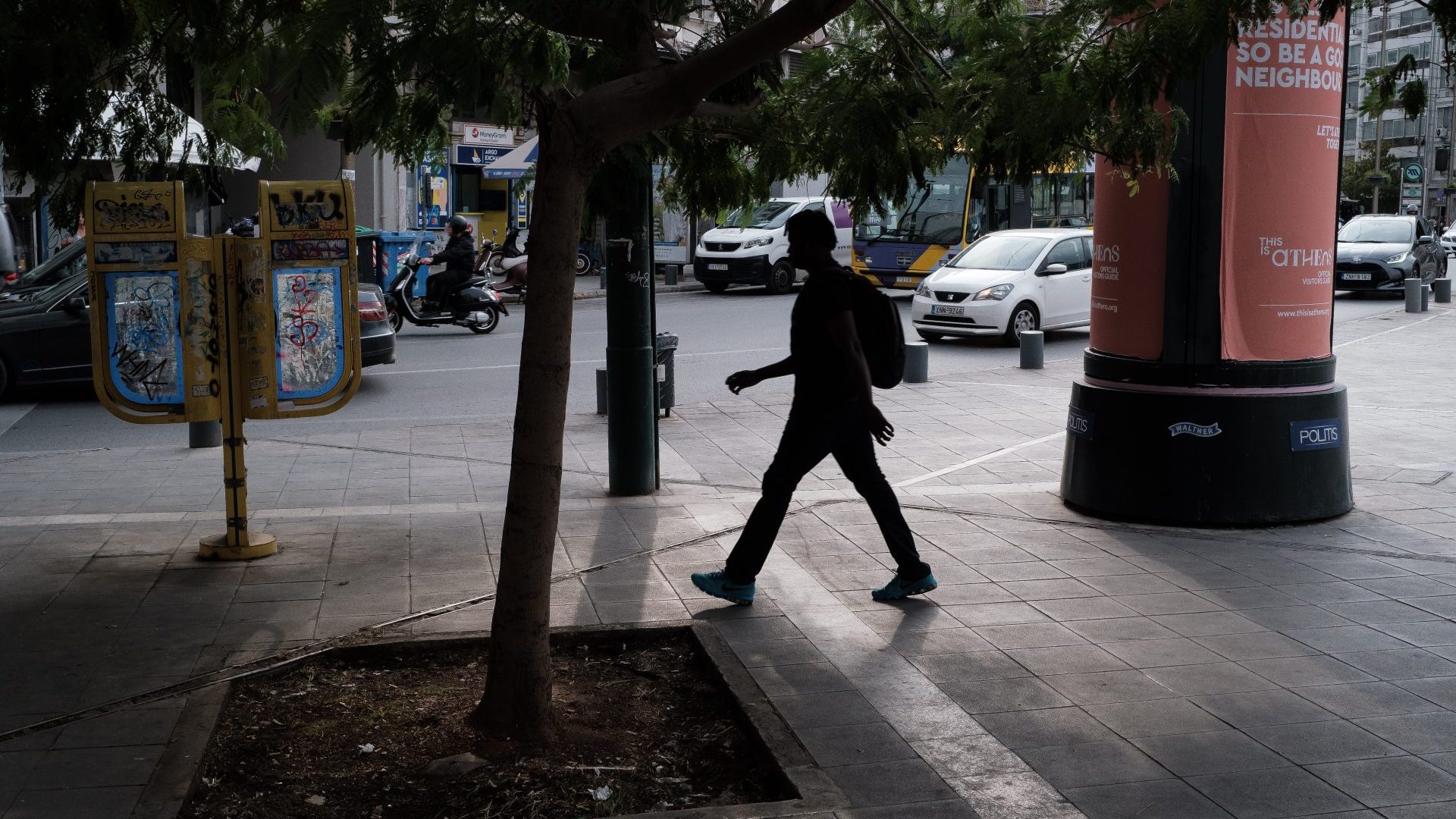On a recent walk through downtown Athens, I noticed that a new hotel had opened its doors near Omonia Square. Rising seven storeys above Septemvriou Avenue, the Vision Omonia is a stylish, monochrome new-build crowned by a rooftop pool with views of the Acropolis. It’s just one of a handful of slick new guest houses that have opened in the area over recent years. Plenty more are planned, including the conversion of a vast, empty office block into a 400-room Aluma Hotel. But what, I wondered, will guests at this new five-star accommodation make of their immediate surroundings?
The warren of streets surrounding Omonia Square are far from the city’s most charming. On TripAdvisor, a Canadian named Neil describes the square as “a slab of hot, dirty concrete covered in pigeons and their droppings with a subway running underneath and homeless men hanging around listlessly”. Another visitor from London noted “this part of Athens is bad. Be careful”.
In the wake of the 2008 financial crash, this area was particularly hard hit by urban decay and became home to large populations of unhoused drug users. Last year, a popular YouTuber called Spanian made a video titled “Europe’s Worst Drug Streets – A Walk Through of Omonia, Athens”, which got around 1.7m views. “This place is just a full-blown ghetto,” he says as he wanders through the neighbourhood, noting slumped figures in apartment entrances and used needles strewn across the pavements.
On the parallel street to the Vision Hotel is Steki 46, Greece’s first legally sanctioned supervised drug-use centre. It opened in 2022 and is run by OKANA, a Greek governmental organisation tasked with providing public prevention and rehabilitation services.
Last year they called upon Ben Scher, a PhD student in Social Intervention and Policy Evaluation at Oxford University, to carry out an assessment of their operations in downtown Athens. The plan was to come up with suggestions as to how services could be improved and Scher, in collaboration with two local researchers, spent five weeks speaking to drug users about how their needs could be better provided for.
“Steki 46 really is of the highest calibre,” says Scher. “Everything they have there is state-of-the-art, like the infrared vein scanners that show service users the safest place to inject.”
But what his conversations with users revealed is that many were drawn in more by the centre’s other services. “Even though OKANA refers to itself as a drug consumption facility, there are lots of things on offer there, like housing assistance, counselling and primary healthcare services from social workers, doctors and psychologists. They take a really holistic approach to the issue.”
Scher has also studied schemes in the UK and Canada, exploring how each country is addressing the problem. “In downtown Vancouver there are 10 overdose protection centres,” says Scher. “But the UK still doesn’t have any of these facilities. It’s one of the only countries in western Europe without them.” Last year the Scottish government green-lit a pilot scheme in Glasgow where users can take their own drugs under the supervision of healthcare workers, and the centre looks set to open within the next few weeks. But, Scher warns, the government is not acting quickly enough – particularly given the rise of synthetic opioids in the UK.
These include the likes of nitazenes, a drug that can be up to 500 times stronger than heroin and has been linked to almost 300 deaths in the UK since June 2023. “We don’t have the infrastructure to deal with this rise,” says Scher. “Looking across the pond at how fentanyl has ravaged Canada and the US, it’s scary to think that our recent influx of synthetic opioids in the UK could be marking the start of a similar downward spiral.”
While Athens’s investments are yet to show marked results in helping users get off the streets, Scher feels positive that the issue is being approached in an effective and humane manner. “Even if it is all part of a big plan to make the city centre more attractive for tourists, the outcome is the same,” Scher tells me. “People are getting access to the help they need. And you can’t be too cynical about that.”
Hester Underhill is a freelance journalist in Athens



